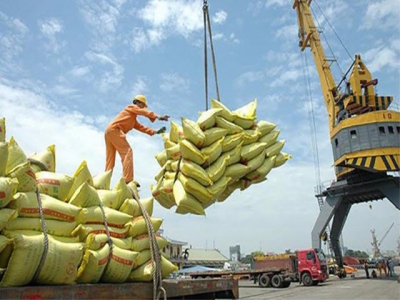Agricultural sector keen to capitalise on EVFTA opportunities

The European Union-Vietnam Free Trade Agreement (EVFTA) is poised to offer a wealth of opportunities to boost the export of Vietnam’s agricultural and aquatic products once it comes into full effect, according to the Ministry of Industry and Trade.
The EVFTA is poised to offer a wealth of opportunities to boost the export of the country’s agricultural and aquatic products
It is expected that the export growth of rice, sugar, forest products, cattle and poultry, and seafood will increase by 65%, 8%, 4%, 3%, 4% and 2% respectively, between 2020 and 2030.
In line with the effects of the EVFTA, the agricultural sector is forecast to become one of the largest beneficiaries of the trade pact with an array of tariffs placed on several Vietnamese products such as broken rice and grain products being slashed to 0%.
With regard to fruit and vegetables, the EU has committed to eliminating import duties immediately after the EVFTA comes into effect. In terms of fisheries, approximately 50% of tariff lines are set to be abolished, while the remaining 50% of tariff lines will also be removed over the course of the subsequent five to seven years.
In addition, further international economic integration is expected to create a wave of new jobs for local farmers from agriculture and other fields, therefore serving to improve the lives of farmers.
As a result, the EVFTA is predicted to facilitate greater investment for the local agricultural sector, contribute to further technological transfer, and restructure production activities. These efforts will increase output and quality in terms of farm produce, thus helping domestic agricultural products to gradually meet the stringent standards placed on them by the European market.
Despite these positives, the country’s agricultural products must strive to overcome a number of EU technical barriers in terms of the rule of origin, quality, and intellectual property protection if they are to make inroads into the market.
Due to small-scale agricultural production, local farmers and businesses in agriculture must be proactive in improving production capacity and product quality, seeking out new markets and developing brands for local farm produce.
It is anticipated that the EVFTA will boost the country’s exports to the EU by 42.7% in 2025 and by 44.37% in 2030 once the trade deal takes full effect.
Related news
 Bac Giang to host lychee trade promotion teleconference next month
Bac Giang to host lychee trade promotion teleconference next month The northern province of Bac Giang will host a teleconference on June 6 to promote the domestic consumption and export of lychee, a local specialty
 Agribusinesses rocked by twin negative impacts
Agribusinesses rocked by twin negative impacts In spite of several highlights, the agricultural picture remains gloomy due to twin blows of climate change and coronavirus.
 In climate change-hit Tien Giang, rice farmers switch to fruits, vegetables
In climate change-hit Tien Giang, rice farmers switch to fruits, vegetables More rice farmers in the Mekong Delta province of Tien Giang have switched to other crops as part of efforts to adapt to climate change.